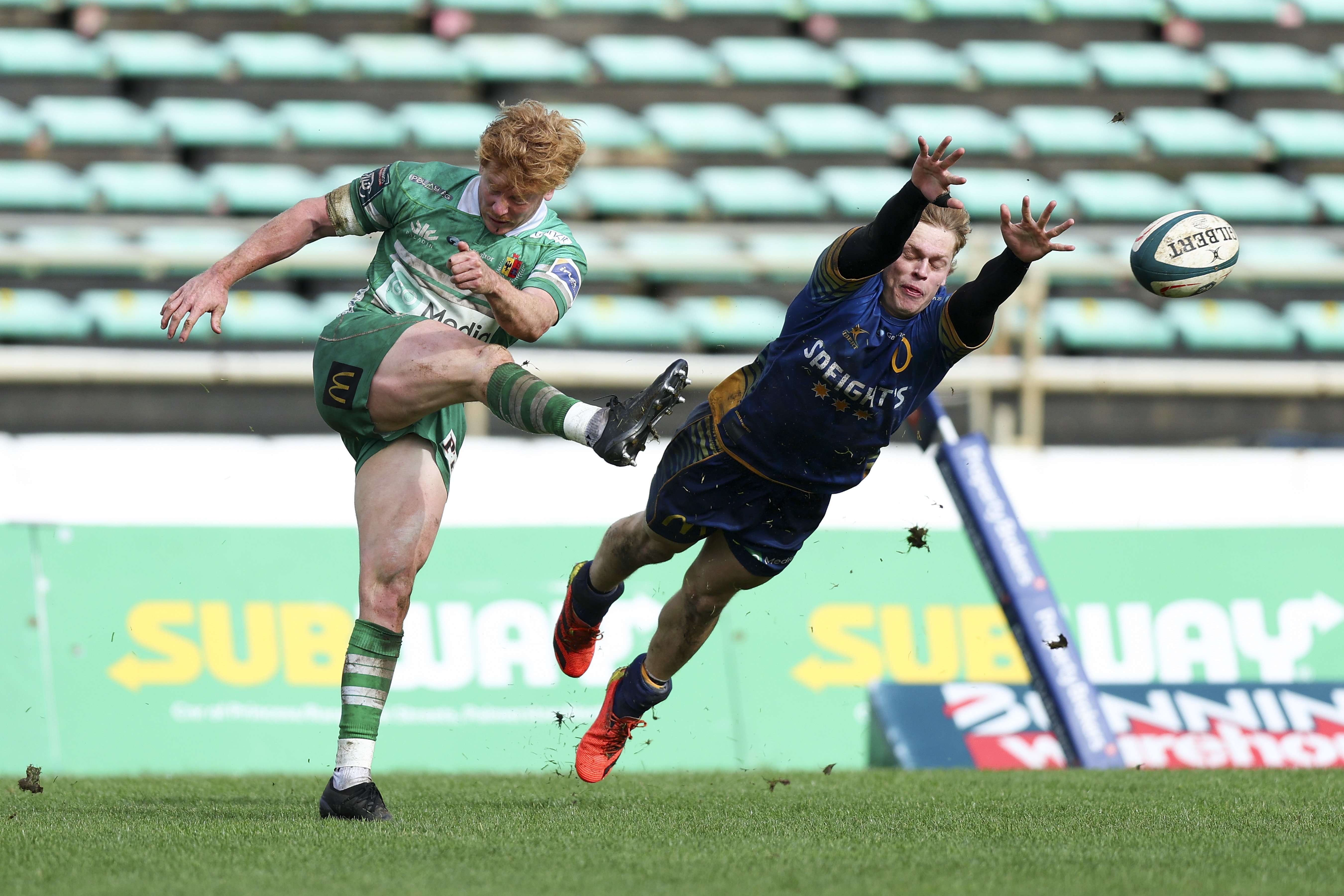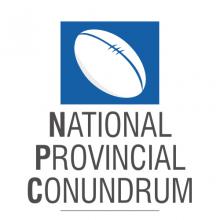
Now we need some idea of where we should head. Our series finishes with three past and present Otago Daily Times rugby writers offering their thoughts.
How did a magnificent competition that was once the envy of the rugby world become a problem?
Bit of a sad story, really.

The NPC instantly became a second-tier event when Super Rugby was introduced in 1996. Then they expanded the All Blacks’ calendar, so they stopped playing in the NPC. Then they got rid of promotion-relegation. Then they tinkered with the format FIFTEEN times.
You can twitter on about the NPC’s importance all you like — and I have a massive soft spot for this competition, by the way — but the result is a bit of a mess, a competition that is running on the fumes of its glorious past but faces an uncertain future due to flat-out unsustainability.
Some appear to be drinking from the New Zealand Rugby Kool-Aid when they suggest the NPC is going through a resurgence, that crowds are up, that the future is bright.
Eh?
My essential concern for the NPC is that it struggles to know what it wants to be.
NZR allows its 14 top unions to spend millions on player and staff wages yet everyone openly talks about the NPC being a development competition.
Every NPC game is televised live — as it is considered part of the "product" that encourages Sky Television to pay the bills — yet we see players rattling around in mostly empty stadiums.
Most egregiously for me, it is trumpeted as a grassroots, tribal, provincial New Zealand competition yet a team like North Harbour ships in an Australian first five. And for what — the glory of finishing 10th?
Do not even get me started on the axing of promotion-relegation. It was a cornerstone of the NPC. Teams could aspire to move up, or fight hard to avoid the drop. Now you have situations like Southland (no disrespect intended) playing every season in a kind of stasis, knowing they have no chance of winning the title (sorry, Stags fans) and are at no risk of relegation. And you have South Canterbury winning three straight Meads Cups and being denied promotion.
Add in the fact you are asking rugby fans to open their hearts and wallets 12 months a year to follow Super, club, school, All Blacks, women’s and NPC rugby, and no wonder this is where we have reached.
What would I do?
Assuming Super Rugby is going nowhere, I would happily see the NPC become an amateur competition.
Make provincial teams consist of players out of club rugby, or players returning home. Train twice a week. Bring back three divisions and promotion-relegation. Play at suburban grounds. Get it off television.
Proper, pure grassroots rugby. You will still have plenty of talented players involved as it will still be a breeding ground for the professional ranks.
It will have its place. Right now, that place is not at all obvious.
— Hayden Meikle, Sports editor
Rugby going professional created not only a lot more jobs and a lot more pods but a lot more words.
One that cropped up early and has been an ever-present since — coming out of HR — is "pathway".
A pathway, leading players from the under-5 grade through all the levels and, ultimately, if the player is good enough, to the All Blacks.
But if they get rid of the NPC and replace it with who knows what, a key part of the pathway will disappear.
Many argue the NPC is no longer delivering All Blacks as the next best and brightest are simply already swallowed up into academies and learn the skills needed by dedicated coaches.
But these academies are hit and miss. And how much more talented do they make already so-called talented players?
We need the NPC for players to test themselves and see whether they have the skills to go to the next level.
Ben Smith initially made it into the All Blacks after a stellar season for Otago at fullback in 2009. The next year, Otago had Chris Small, a Canterbury import, in the custodian role. He lasted how many games?
Players being exposed to the first-class level sort the good from the not so good.

What that is? Well, good luck with that. The moaning then will be just the same as we have now.
Make it totally amateur with teams made up of club players? Unions will simply cheat by paying players under the table and inventing job titles for them. That was happening in the 10-15 years before the game went professional.
Expand Super Rugby? The franchises are not going to go for that.
Limit the NPC to maybe six games for teams a season? It will be over before it gets going.
Have the Heartland unions involved in a state of origin competition? Get ready for 100-point thrashings.
Play in South/North Island conferences? There are only four teams in the South Island. Going to be a short season.
Just can it completely? Sit back and watch players who think they are good, and there are way too many of them, heading to every nook and cranny around the world to play. It will be a tsunami loss of talent.
As it stands, the NPC is financially unsustainable. And it needs to change.
But whatever comes in its place may create a seismic shift in the game in this country.
— Steve Hepburn, Former sports editor
The NPC’s problems boil down to two points: it costs too much and people have lost interest.
There has been a public relations push by New Zealand Rugby during the past week or so to paint the competition as finding its "sweet spot".
Crowd numbers are up 11%, we are told, and the quality of rugby has improved.
That story has been picked up by other media outlets. We have swum against the current in this series.
Otago has seen a decline in crowds, not a rise. And this year’s NPC did finish strongly, but most of the people we spoke to for this series would rather watch reruns from the 1990s when rugby was played with more panache and fewer forwards in the backline.
There are 19 professional teams in New Zealand. That is too many, and it seems the most obvious place to make some savings.
Take Dunedin, for example. Can a city that size really support two professional teams?
That is two chief executives, two commercial managers, two financial managers, two marketing people and two office administrators.
There is a lot of duplication in the high performance teams as well.
Between the Highlanders and Otago, there are two head coaches, seven assistant coaches, three management positions, three physios, five strength and conditioning coaches, a couple of sport analysts and we could go on.
And they operate out of separate offices, although they are both based at Forsyth Barr Stadium.
If Otago and the Highlanders had better alignment, they could share resources to cut their overheads significantly.
That might not be workable with the Highlanders being essentially a private entity and the Otago Rugby Football Union an incorporated society.
But reducing the duplication seems a very good place to make savings before making any changes to the NPC.
It is clear the NPC is still a vital cog in helping players bridge the gap between club rugby and Super Rugby. But it is not clear it is the pipeline for the All Blacks it used to be.
And when you get more people along to the club final between Green Island and Dunedin than you do a derby game between Otago and Canterbury when the ticket prices have been slashed, you have been usurped as the community game as well.
Bringing in players from overseas, as teams have done, is not the best way to foster a tighter connection with the community. It cannot be the best way to save money as well.
Let’s make the NPC a proper community game with rules favouring attacking rugby and not defence.
Push the offside line back. Reduce the number of reserves on the bench. Get rid of the driving maul.
People want to see running rugby not box kicks, pods and rolling mauls.
It is worth a try.
— Adrian Seconi, Sports reporter
— This year’s NPC final between Wellington and Bay of Plenty begins at 3.05pm in Wellington today.
Your thoughts
We want to know what you think about the NPC, and any ideas you have about its future.
Email us (sport@odt.co.nz) your thoughts.











